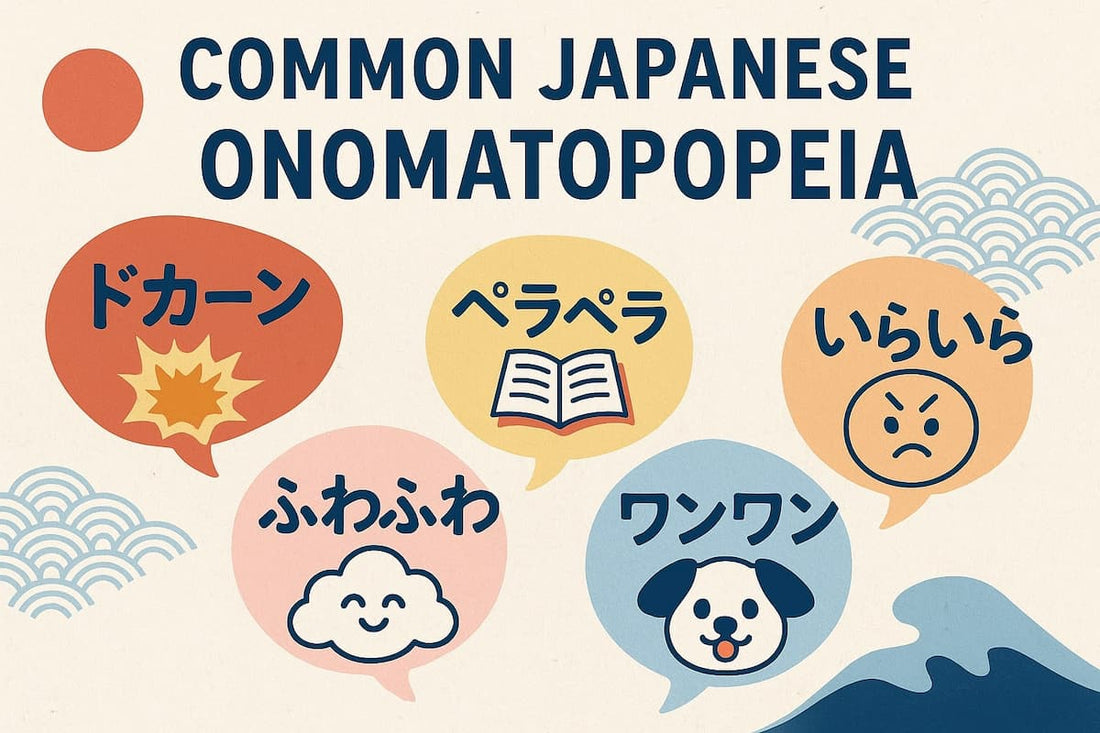
Common Japanese Onomatopoeia: Essential Words You’ll Hear Everywhere
Share
If you spend any time in Japan, you’ll hear onomatopoeia everywhere: on TV, in everyday conversations, in manga, and even on product packaging. These words can be confusing at first, but they add a lot of color and nuance to the language.
Below you’ll find a list of the 107 common Japanese onomatopoeia, split by type. Use this as a reference whenever you get stuck or just want to sound a bit more natural when speaking or listening to Japanese.
If you want to keep this list in front of your eyes and finally learn Japanese onomatopoeia, check out our onomatopoeia poster, featuring all 107 words below and available for worldwide shipping!
擬音語 (giongo)
Imitate real sounds, like animal cries, natural noises, or object sounds.
| Kana | Romaji | Meaning |
|---|---|---|
| ガチャ | gacha | Clank, click (e.g., door or lock) |
| ガラガラ | garagara | Rattling or empty-sounding |
| ゴックン | gokkun | Swallowing sound: Gulp |
| ゴホン | gohon | Loud coughing sound: Ahem |
| ザーザー | zāzā | Sound of heavy, continuous rain |
| サクサク | sakusaku | Crispy, crunchy |
| ズルズル | zuruzuru | Slurping noodles or dragging something |
| チュ | chu | Kissing sound: Mwah or smooch |
| チリン | chirin | Bell ringing lightly: Ting-a-ling |
| ドカーン | dokān | Big explosion sound: Boom! |
| ハクション | hakushon | Sneezing sound: Achoo! |
| バタバタ | batabata | Flapping (e.g. wings, clothes) or busy, frantic activity |
| バン | ban | Bang, loud clap |
擬態語 (gitaigo)
Describe states, conditions, movements, or feelings without imitating real sounds.
| Kana | Romaji | Meaning |
|---|---|---|
| あたふた | atafuta | Acting in a panic, flustered |
| あっさり | assari | Light in taste or easily, without fuss or resistance |
| いらいら | iraira | Feeling irritated, frustrated |
| うっかり | ukkari | Carelessly, by mistake |
| うとうと | utōto | Dozing off lightly |
| うろうろ | urōro | Wandering aimlessly |
| うんざり | unzari | Fed up, tired of something |
| がたがた | gatagata | Shaking (e.g., from fear, cold) or rattling noisily |
| ぎざぎざ | gizagiza | Jagged or rough-edged |
| きちんと | kichinto | Neatly, properly |
| ぎゅうぎゅう | gyūgyū | Packed tightly or overcrowded |
| きらきら | kirakira | Sparkling, glittering |
| ぎりぎり | girigiri | Just in time or barely enough |
| ぐっすり | gussuri | Sleeping deeply |
| ぐるぐる | guruguru | Spinning around and around |
| ごくごく | gokugoku | Repeated gulping, like chugging a drink |
| ごしごし | goshigoshi | Scrubbing hard |
| こそこそ | kosokoso | Sneakily or secretly |
| ごちゃごちゃ | gochagocha | Messy, cluttered or confusing |
| こつこつ | kotsukotsu | Working steadily and patiently over time |
| ごろごろ | gorogoro | Lazing around or thunder rumbling |
| さっぱり | sappari | Feeling refreshed or completely (e.g., completely forgotten) |
| さらさら | sarasara | Smooth or flowing lightly (e.g., hair) |
| じー | jī | Staring intently |
| しーん | shīn | Total silence (e.g., when a room goes quiet suddenly) |
| しくしく | shikushiku | Crying quietly |
| じたばた | jitabata | Making a scene or struggling |
| しっかり | shikkari | Firmly or reliably |
| しどろもどろ | shidoromodoro | Flustered and incoherent (especially when speaking) |
| じめじめ | jimejime | Damp and humid |
| じろじろ | jirojiro | Staring rudely |
| しんみり | shinmiri | Quiet and emotional or reflective |
| すかすか | sukasuka | Empty or full of gaps |
| すっきり | sukkiri | Feeling clear or refreshed |
| すらすら | surasura | Smoothly or easily (e.g., reading, writing) |
| そっと | sotto | Gently or quietly |
| たっぷり | tappuri | Plenty, a lot |
| だらだら | daradara | Lazily or slowly without purpose |
| ちらっ | chira | Glancing briefly |
| ちらほら | chirahora | Here and there, scattered |
| つるつる | tsurutsuru | Smooth and slippery |
| でこぼこ | dekoboko | Uneven or bumpy |
| どきどき | dokidoki | Heart pounding with excitement or fear |
| どたばた | dotabata | Rushing around noisily or in chaos |
| どんより | donyori | Gloomy or a sky covered by grey cloud |
| にこにこ | nikoniko | Smiling happily |
| にやにや | niyaniya | Grinning slyly or creepily |
| ぬるぬる | nurunuru | Slippery and slimy |
| ねばねば | nebaneba | Sticky and gooey |
| のろのろ | noronoro | Moving slowly |
| のんびり | nonbiri | Relaxed and unhurried |
| はっきり | hakkiri | Clearly or distinctly |
| ばったり | battari | Suddenly, unexpectedly encountering someone or collapsing |
| ばっちり | bacchiri | Perfectly, flawlessly |
| ばらばら | barabara | Scattered, broken apart, or uncoordinated |
| ぴかぴか | pikapika | Shiny and clean |
| びしょびしょ | bishobisho | Soaking wet |
| びっくり | bikkuri | Surprised, startled |
| ぴったり | pittari | Fits perfectly or just right |
| ひりひり | hirihiri | Stinging or burning (pain) |
| ひんやり | hinyari | Cool and refreshing |
| ふらふら | furafura | Dizzy, unsteady |
| ぶるぶる | buruburu | Shivering, trembling (e.g., from cold, fear) |
| ふんわり | funwari | Soft and fluffy |
| ぺらぺら | perapera | Fluent (language) or thin, flimsy |
| べろべろ | berobero | Drunk or licking heavily |
| ほっ | ho | Feeling relieved |
| ぼさぼさ | bosabosa | Messy or unkempt (especially hair) |
| ぼろぼろ | boroboro | Worn-out or falling apart |
| ぼんやり | bonyari | Absent-minded or vague |
| ムキムキ | mukimuki | Visibly very muscular |
| めちゃくちゃ | mechakucha | Messy, chaotic or extremely, crazy |
| もぐもぐ | mogumogu | Chewing with mouth full |
| モテモテ | motemote | Very popular (usually with the opposite sex) |
| ゆっくり | yukkuri | Slowly and calmly |
| ゆらゆら | yurayura | Swaying, wobbling |
| わいわい | waiwai | Noisy and lively (crowd or group) |
| わくわく | wakuwaku | Excited, thrilled with anticipation |
擬声語 (giseigo)
Imitate voices or vocal sounds made by humans or animals.
| Kana | Romaji | Meaning |
|---|---|---|
| カーカー | kākā | Cawing sound of a crow: Caw caw! |
| ガオー | gaō | Roar of a beast: Roar! |
| ケロケロ | kerokero | Frog’s croak: Ribbit ribbit! |
| コケコッコ | kokekokko | Rooster’s crow: Cock-a-doodle-doo! |
| ニャー | nyā | Cat’s meow: Meow |
| パオーン | paōn | Elephant sound |
| ヒヒイン | hihiin | Horse’s neigh: Neigh! |
| ピヨピヨ | piyopiyo | Chick’s chirping: Peep peep! |
| ブーブー | būbū | Pig’s oink: Oink oink, or complaining: Grumble grumble |
| ブンブン | bunbun | Buzzing sound (e.g., a mosquito flying): Bzzz |
| ホーホー | hōhō | Owl’s hoot: Hoo hoo |
| メェーメェー | mēmē | Sheep’s baa: Baa baa |
| モーモー | mōmō | Cow’s moo: Moo moo |
| ワンワン | wanwan | Dog’s bark: Woof woof |
Related Posts
-
![~ます – Polite Present and Past Verb Forms in Japanese [JLPT N5]](//hirakan.com/cdn/shop/articles/masu_-_polite_verb_form.jpg?v=1767433709&width=170)
~ます – Polite Present and Past Verb Forms in Japanese [JLPT N5]
Quick Summary Meaning: The endings ~ます/~ません/~ました/~ませんでした make verbs polite in Japanese (present/future and past...
-
![よ – Adding Friendly Emphasis in Japanese [JLPT N5]](//hirakan.com/cdn/shop/articles/yo_-_ending_particle_Friendly_Emphasis.jpg?v=1767433517&width=170)
よ – Adding Friendly Emphasis in Japanese [JLPT N5]
Quick Summary Meaning: The sentence-ending particle よ adds light emphasis. It shows new information, your strong opin...
-
![ね – Softly Seeking Agreement in Japanese [JLPT N5]](//hirakan.com/cdn/shop/articles/ending_particle.jpg?v=1766907843&width=170)
ね – Softly Seeking Agreement in Japanese [JLPT N5]
Quick Summary Meaning: The particle ね is used at the end of a sentence to gently seek agreement, confirmation, ...
-
![何・だれ・いつ・どこ・どう – Basic Question Words in Japanese [JLPT N5]](//hirakan.com/cdn/shop/articles/Question_Words.jpg?v=1766907708&width=170)
何・だれ・いつ・どこ・どう – Basic Question Words in Japanese [JLPT N5]
Quick Summary Meaning: These are basic Japanese “wh-words” like “what, who, when, where, how, why, how much, ho...
-
![ここ・そこ・あそこ・どこ – Talking About Places in Japanese [JLPT N5]](//hirakan.com/cdn/shop/articles/places_fb57172a-7d06-47ee-a9b7-c1f4b6b2b264.jpg?v=1766305419&width=170)
ここ・そこ・あそこ・どこ – Talking About Places in Japanese [JLPT N5]
Quick Summary Meaning: ここ (koko) = here, そこ (soko) = there (near you), あそこ (asoko) = over there (far from both)...
-
![この・その・あの・どの – Using ‘This / That / Which’ with Nouns in Japanese [JLPT N5]](//hirakan.com/cdn/shop/articles/acd351ada3fe4b04ae86de788a3350b8.jpg?v=1766305268&width=170)
この・その・あの・どの – Using ‘This / That / Which’ with Nouns in Japanese [JLPT N5]
Quick Summary Meaning: この (kono), その (sono), あの (ano), どの (dono) mean “this / that / which” when they come dire...
-
![これ・それ・あれ・どれ – Saying ‘This / That / Which One’ in Japanese [JLPT N5]](//hirakan.com/cdn/shop/articles/this-that.jpg?v=1766305107&width=170)
これ・それ・あれ・どれ – Saying ‘This / That / Which One’ in Japanese [JLPT N5]
Quick Summary Meaning: これ (kore), それ (sore), あれ (are), and どれ (dore) all mean “this / that / which (one)” when you ar...
-
![か~か – Expressing Choices like “A or B” in Japanese [JLPT N5]](//hirakan.com/cdn/shop/articles/choices.jpg?v=1766304827&width=170)
か~か – Expressing Choices like “A or B” in Japanese [JLPT N5]
Quick Summary Meaning: The pattern か~か shows a simple choice: “A or B.” How to Use: Put か after each optio...
-
![~から~まで – Saying “From A to B” in Japanese [JLPT N5]](//hirakan.com/cdn/shop/articles/from-AtoB.jpg?v=1765093560&width=170)
~から~まで – Saying “From A to B” in Japanese [JLPT N5]
Quick Summary Meaning: ~から~まで shows the starting point and ending point of something: “from A to B.” It is ofte...
-
![まで – Expressing “Until” and “Up To” in Japanese [JLPT N5]](//hirakan.com/cdn/shop/articles/until-up-to.jpg?v=1765093405&width=170)
まで – Expressing “Until” and “Up To” in Japanese [JLPT N5]
Quick Summary Meaning: まで (made) means “until” or “up to” and shows a limit of time, place, number, or even act...
-
![から – Expressing “Because” and “From/Since” in Japanese [JLPT N5]](//hirakan.com/cdn/shop/articles/because-from_since.jpg?v=1765093285&width=170)
から – Expressing “Because” and “From/Since” in Japanese [JLPT N5]
Quick Summary Meaning: から shows a reason (“because”) or a starting point (“from / since”). How to Use: Put...
-
![や – Listing Examples with “And, Among Others” in Japanese [JLPT N5]](//hirakan.com/cdn/shop/articles/and.jpg?v=1765093138&width=170)
や – Listing Examples with “And, Among Others” in Japanese [JLPT N5]
Quick Summary Meaning: や connects two or more nouns and means “and” or “among other things.” It shows that your lis...
-
![か – Forming Questions and Saying “Or” in Japanese [JLPT N5]](//hirakan.com/cdn/shop/articles/ka-questions.jpg?v=1763787134&width=170)
か – Forming Questions and Saying “Or” in Japanese [JLPT N5]
Quick Summary Meaning: The particle か turns a sentence into a question, or can mean “or” when choosing between thin...
-
![も – Saying “Also” and “Too” in Japanese [JLPT N5]](//hirakan.com/cdn/shop/articles/mo-also-too_99f908e6-78d0-4f82-8319-391ef42764bc.jpg?v=1763787251&width=170)
も – Saying “Also” and “Too” in Japanese [JLPT N5]
Quick Summary Meaning: The particle も means “also,” “too,” or “even.” It shows that something is the same as someth...
-
![と – Linking 'And', 'With', and Quotations in Japanese [JLPT N5]](//hirakan.com/cdn/shop/articles/to-and-with-quotation.jpg?v=1763265110&width=170)
と – Linking 'And', 'With', and Quotations in Japanese [JLPT N5]
Quick Summary Meaning: と links things like “A and B,” marks doing something with someone, and shows a quotation (“…,”...
-
![で – Marking Where and How an Action Happens in Japanese [JLPT N5]](//hirakan.com/cdn/shop/articles/de-where-how-action-happens.jpg?v=1763264973&width=170)
で – Marking Where and How an Action Happens in Japanese [JLPT N5]
Quick Summary Meaning: で marks the location where an action happens or the means/tool/method used to do something...
-
![へ – Marking Direction ‘Toward’ in Japanese [JLPT N5]](//hirakan.com/cdn/shop/articles/he-marking-direction.jpg?v=1762667986&width=170)
へ – Marking Direction ‘Toward’ in Japanese [JLPT N5]
Quick Summary Meaning: The particle へ marks direction or “toward” a place or person. It points where something is hea...
-
![に – Marking Time, Destinations, and Recipients in Japanese [JLPT N5]](//hirakan.com/cdn/shop/articles/ni-marking-destination.jpg?v=1762667846&width=170)
に – Marking Time, Destinations, and Recipients in Japanese [JLPT N5]
Quick Summary Meaning: The particle に marks a point in time (at/on), a destination you reach (to/into), or a target/r...
-
![の – Possession and Noun Linking in Japanese [JLPT N5]](//hirakan.com/cdn/shop/articles/no-possession-and-noun-linking.jpg?v=1761961297&width=170)
の – Possession and Noun Linking in Japanese [JLPT N5]
Quick Summary Meaning: Links two nouns to show possession, belonging, or description. Often reads as “’s” or “of....
-
![を – Marking the Direct Object in Japanese [JLPT N5]](//hirakan.com/cdn/shop/articles/o-direct-object.jpg?v=1761960990&width=170)
を – Marking the Direct Object in Japanese [JLPT N5]
Quick Summary Meaning: を marks the direct object — the thing that receives the action of a verb. It’s pronounced ...
-
![が – Marking the Subject ('Who/What') in Japanese [JLPT N5]](//hirakan.com/cdn/shop/articles/ga-subject-marker_60f30f70-6ca5-47ee-9a00-3646195d7d3c.jpg?v=1761386355&width=170)
が – Marking the Subject ('Who/What') in Japanese [JLPT N5]
Quick Summary Meaning: The particle が marks the subject of a sentence and highlights new or focused information (an...
-
![は (wa) – Topic Marker and Contrast in Japanese [JLPT N5]](//hirakan.com/cdn/shop/articles/wa-topic-marker.jpg?v=1761385996&width=170)
は (wa) – Topic Marker and Contrast in Japanese [JLPT N5]
Quick Summary Meaning: Marks the topic of the sentence — what you’re talking about. Often feels like “as for...” in E...
-
![じゃない・ではありません – Expressing 'Is/Was Not' in Japanese [JLPT N5]](//hirakan.com/cdn/shop/articles/janai-dehaarimasen_2594963b-531e-4f4d-a9b0-361010e0a720.jpg?v=1760865884&width=170)
じゃない・ではありません – Expressing 'Is/Was Not' in Japanese [JLPT N5]
Quick Summary Meaning: The negative of the copula “to be.” Say “is not” or “was not” with nouns and na-adjectives. Ho...
-
![だ・です/だった・でした – Saying ‘to be’ in Japanese [JLPT N5]](//hirakan.com/cdn/shop/articles/da-desu-datta-deshita_58bbc732-53fd-48da-83c7-4e477e7cc0b2.jpg?v=1760864506&width=170)
だ・です/だった・でした – Saying ‘to be’ in Japanese [JLPT N5]
Quick Summary Meaning: The Japanese copula — the basic “to be.” It links a topic to a noun or a na-adjective to state...
-

How to Say “To Increase” and “To Decrease” in Japanese: With Examples
You've noticed there are multiple ways to say “to increase” or "to decrease" in Japanese. Between transitive and intr...
-

How to Say "Police Officer" in Japanese: Common Terms and Slang
There are several ways to say "police officer" in Japanese, and each one has a different level of formality and usage...
-
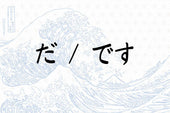
Understanding だ (da) and です (desu) in Japanese: Meaning and Usage
When learning Japanese, one of the first things you’ll come across is だ (da) and です (desu). These words don’t have a ...
-
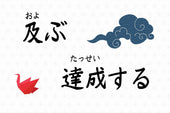
Difference Between 及ぶ (およぶ) and 達成する (たっせいする)
Both 及ぶ and 達成する can relate to "reaching" or "achieving" something, but they have distinct nuances and usage contexts...
-

JLPT N5 Study Guide: A Beginner's Roadmap to Acing the Test
If you’ve just started learning Japanese and are aiming to ace the JLPT N5, you’ll need a solid study guide to help y...
-

Beginner's Guide to Japanese Particles: Learn the Basics
TL;DR: Japanese particles are crucial for structuring sentences, acting like conjunctions or prepositions in English...
-

JLPT N5 Vocabulary List - All 748 Words You Need to Know
Vocabulary is the foundation of any language, and Japanese is no exception. The more you know, the better. Over time ...
-
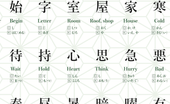
JLPT N4 Kanij List - All 176 Characters You Need To Know
After mastering the JLPT N5 kanji, you're ready to take your Japanese kanji game to the next level. JLPT N4. Let's go...
-
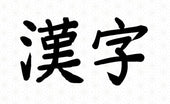
Kanji For Kanji - 漢字
Inception time. Which kanji compose the kanji of "kanji"? The kanji for "kanji" is actually pretty straightforward. I...
-

How to Memorize Katakana Easily: 9 Tips for Beginners
For those diving into Japanese, mastering hiragana and katakana is the first significant challenge. While hiragana o...
-
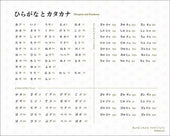
Complete Hiragana and Katakana Chart With All 112 Characters
The very first step for everybody who wants to learn Japanese is to study the hiragana and katakana chart (before lea...
-
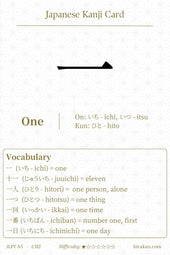
JLPT N5 Kanji: Kanji For One 一 (ichi)
Probably one the most simple kanji to remember, the kanji for 'one' is simply written '一'. Let's see its readings and...
-
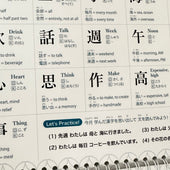
How Long Does It Take to Learn Kanji? A Beginner's Guide
Ask any Japanese student what's the scariest part of learning the language, and they'll say kanji. And they're righ...
-
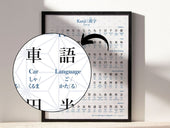
Is it Necessary to Learn Kanji? The Last Answer You'll Ever Need
Many beginners in Japanese wonder whether they should really learn kanji. I know this, because I also wondered when s...
-

How Long Does it Take to Learn Hiragana and Katakana?
As a beginner in Japanese, your first step is diving into the alphabets of Hiragana and Katakana. These are the build...
-

13 Best YouTube Channels to Learn Japanese, From Beginner to Intermediate
YouTube can be an incredible resource for learning Japanese. And best of all, it's free. So we've compiled a list of ...
-
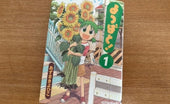
Top 10 Manga for Japanese Language Learners: From Beginners to Intermediates!
If you're learning Japanese, chances are you're interested in manga. So instead of reading texts about Tanaka-san s...
-
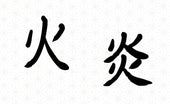
Kanji for 'Fire' in Japanese: 火 or 炎?
Welcome to our enlightening exploration of Japanese kanji! Today, we're igniting our understanding of a primal force ...
-

The Complete Guide to Country Names in Japanese: Say and Pronounce Them Right!
Whether you're planning a trip, learning Japanese, or just curious about how different countries are represented in a...
-

Kanji for Peace: 平, 和, 泰 - The Symbols of Harmony
You might be wondering what are the Japanese symbols for 'Peace'. In this article, we're diving deep into this univer...
-
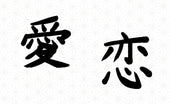
Kanji for 'Love': How and When to Use 愛 and 恋
Welcome to our journey into the world of Japanese kanji! Today, we're delving into one of the most heartwarming and p...
-

Kanji for 'Hot' in Japanese: 暑, 湯, and 熱 - A Comprehensive Guide
Welcome to our journey into the world of Japanese kanji! Today, we're going to delve into an exciting and essential c...
-
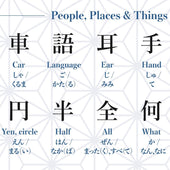
JLPT N5 Kanji List - All 112 Characters You Need To Know
Below we've listed all 112 JLPT N5 level kanji along with their English meaning, readings, and two accompanying vocab...


![~ます – Polite Present and Past Verb Forms in Japanese [JLPT N5]](http://hirakan.com/cdn/shop/articles/masu_-_polite_verb_form.jpg?v=1767433709&width=170)
![よ – Adding Friendly Emphasis in Japanese [JLPT N5]](http://hirakan.com/cdn/shop/articles/yo_-_ending_particle_Friendly_Emphasis.jpg?v=1767433517&width=170)
![ね – Softly Seeking Agreement in Japanese [JLPT N5]](http://hirakan.com/cdn/shop/articles/ending_particle.jpg?v=1766907843&width=170)
![何・だれ・いつ・どこ・どう – Basic Question Words in Japanese [JLPT N5]](http://hirakan.com/cdn/shop/articles/Question_Words.jpg?v=1766907708&width=170)
![ここ・そこ・あそこ・どこ – Talking About Places in Japanese [JLPT N5]](http://hirakan.com/cdn/shop/articles/places_fb57172a-7d06-47ee-a9b7-c1f4b6b2b264.jpg?v=1766305419&width=170)
![この・その・あの・どの – Using ‘This / That / Which’ with Nouns in Japanese [JLPT N5]](http://hirakan.com/cdn/shop/articles/acd351ada3fe4b04ae86de788a3350b8.jpg?v=1766305268&width=170)
![これ・それ・あれ・どれ – Saying ‘This / That / Which One’ in Japanese [JLPT N5]](http://hirakan.com/cdn/shop/articles/this-that.jpg?v=1766305107&width=170)
![か~か – Expressing Choices like “A or B” in Japanese [JLPT N5]](http://hirakan.com/cdn/shop/articles/choices.jpg?v=1766304827&width=170)
![~から~まで – Saying “From A to B” in Japanese [JLPT N5]](http://hirakan.com/cdn/shop/articles/from-AtoB.jpg?v=1765093560&width=170)
![まで – Expressing “Until” and “Up To” in Japanese [JLPT N5]](http://hirakan.com/cdn/shop/articles/until-up-to.jpg?v=1765093405&width=170)
![から – Expressing “Because” and “From/Since” in Japanese [JLPT N5]](http://hirakan.com/cdn/shop/articles/because-from_since.jpg?v=1765093285&width=170)
![や – Listing Examples with “And, Among Others” in Japanese [JLPT N5]](http://hirakan.com/cdn/shop/articles/and.jpg?v=1765093138&width=170)
![か – Forming Questions and Saying “Or” in Japanese [JLPT N5]](http://hirakan.com/cdn/shop/articles/ka-questions.jpg?v=1763787134&width=170)
![も – Saying “Also” and “Too” in Japanese [JLPT N5]](http://hirakan.com/cdn/shop/articles/mo-also-too_99f908e6-78d0-4f82-8319-391ef42764bc.jpg?v=1763787251&width=170)
![と – Linking 'And', 'With', and Quotations in Japanese [JLPT N5]](http://hirakan.com/cdn/shop/articles/to-and-with-quotation.jpg?v=1763265110&width=170)
![で – Marking Where and How an Action Happens in Japanese [JLPT N5]](http://hirakan.com/cdn/shop/articles/de-where-how-action-happens.jpg?v=1763264973&width=170)
![へ – Marking Direction ‘Toward’ in Japanese [JLPT N5]](http://hirakan.com/cdn/shop/articles/he-marking-direction.jpg?v=1762667986&width=170)
![に – Marking Time, Destinations, and Recipients in Japanese [JLPT N5]](http://hirakan.com/cdn/shop/articles/ni-marking-destination.jpg?v=1762667846&width=170)
![の – Possession and Noun Linking in Japanese [JLPT N5]](http://hirakan.com/cdn/shop/articles/no-possession-and-noun-linking.jpg?v=1761961297&width=170)
![を – Marking the Direct Object in Japanese [JLPT N5]](http://hirakan.com/cdn/shop/articles/o-direct-object.jpg?v=1761960990&width=170)
![が – Marking the Subject ('Who/What') in Japanese [JLPT N5]](http://hirakan.com/cdn/shop/articles/ga-subject-marker_60f30f70-6ca5-47ee-9a00-3646195d7d3c.jpg?v=1761386355&width=170)
![は (wa) – Topic Marker and Contrast in Japanese [JLPT N5]](http://hirakan.com/cdn/shop/articles/wa-topic-marker.jpg?v=1761385996&width=170)
![じゃない・ではありません – Expressing 'Is/Was Not' in Japanese [JLPT N5]](http://hirakan.com/cdn/shop/articles/janai-dehaarimasen_2594963b-531e-4f4d-a9b0-361010e0a720.jpg?v=1760865884&width=170)
![だ・です/だった・でした – Saying ‘to be’ in Japanese [JLPT N5]](http://hirakan.com/cdn/shop/articles/da-desu-datta-deshita_58bbc732-53fd-48da-83c7-4e477e7cc0b2.jpg?v=1760864506&width=170)






















